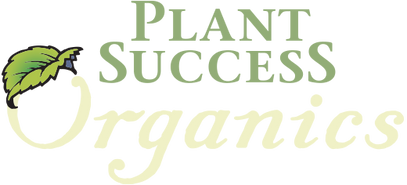Knowing the Different Types of Fertilizers Can Help You Improve Your Plants’ Health
As a gardener, you know the importance of fertilizing your lawn and plants. But you may not be familiar with the different types of fertilizers. Knowing the difference can help you to decide which type of fertilizer your lawn and garden need. Today, we are going to cover common fertilizer types to help you grow more familiar with their key features and differences. This should aid you in making a more informed decision when it’s time to select a fertilizer for your next gardening project.Organic Fertilizer
Organic fertilizers such as manure and compost provide a wealth of nutrients to your plants. While they do tend to work slowly, they will indeed help build your soil up and fortify it for long-term plant health.
Compost is especially easy to make and one of the most effective fertilizers. Use your kitchen scraps at home to make compost and you can enjoy both the savings and the results!
NPK Fertilizers
By industry standards a “complete” fertilizer contains a ratio of nitrogen (N), phosphorus(P), and potassium (K). These fertilizers will have varying levels of these substances designed to produce different benefits for your plants.
Depending on the bag of NPK fertilizer, you might find one that is “balanced” where there are equal levels of nitrogen, phosphorus, and potassium. Others might have varying levels that are not the same across all three.
Let’s look at nitrogen, phosphorus, and potassium fertilizers individually:
Nitrogen Fertilizers
Nitrogen is an essential nutrient for your plants to grow healthy and strong. While most organic fertilizers contain nitrogen, you can also purchase bags of slow-release nitrogen fertilizers and urea nitrogen fertilizer.
If you are a produce gardener, you might be delighted to know that nitrogen-rich fertilizers can also help support healthy fruit development in your plants. It can also help young plants grow more quickly so that they can take root in the soil more effectively.
Phosphorus Fertilizer
Plants need a lot of phosphorous throughout their lifecycle, and plants deficient in phosphorous have stunted growth. Work a phosphate fertilizer into your soil before planting. Seabird guano is a good, natural phosphate fertilizer.
The primary benefit that phosphorus provides is by helping your plants better process nutrients. In turn, this helps your plants grow to their fullest potential. Be sure not to leave out phosphorus from your fertilizer!
Potassium Fertilizer
Potassium helps plants to grow strong, deep roots. It's also essential for photosynthesis and to protect against plant diseases. If your plants are deficient in potassium, the edges of leaves could turn brown or yellow or even die!
Healthy Microbe and Fungi Fertilizers
Fertilizers made from beneficial microbes and fungi, like mycorrhizae and trichoderma, are some of the most overlooked yet effective products for healthy plant growth. These living fertilizers help plant roots absorb and use vital nutrients.
In the wild, over 90% of plant species form a symbiotic relationship with mycorrhizae and trichoderma fungi. When you have a healthy colony of beneficial soil microbes supporting growth, you can benefit from stronger and healthier plants!
Let’s look at these types of products in a bit more detail:
What is Mycorrhizae?
Mycorrhizae refer to the symbiotic connection between plants’ roots and beneficial fungi. In turn, this relationship helps plants grow stronger by increasing the reach of the plant’s roots, allowing for greater nutrient and water absorption.
Additionally, mycorrhizae can also help plants resist diseases and improve interactions with the surrounding soil. This symbiotic synergy results in some truly robust plants!
What is Trichoderma?
Trichoderma is a type of fungi found in almost every type of soil and across a variety of land environments. They are powerhouses for enzyme production and can play significant roles in preventing the growth of pathogens that could affect the healthy development of your plants.
While trichoderma is not a cure-all for plant diseases, it can control their spread. This allows you to treat your plant more efficiently and effectively by confining the problem to just part of the plant rather than the entire system.
Get Your Own Soil Microbes for Your Next Gardening Project
If you are ready to experience the benefits of soil microbes in your own garden, we have what you need to get started. Plant Success Organics is the country's top supplier of plant-healthy microbe products. Check out our products here or contact us anytime to learn more.
